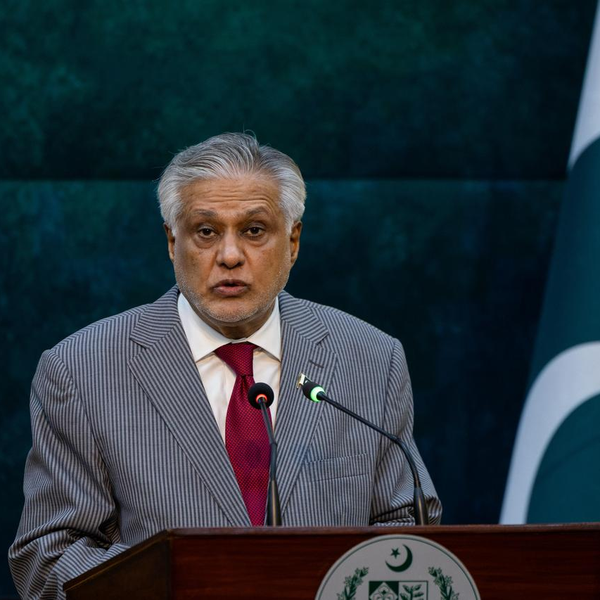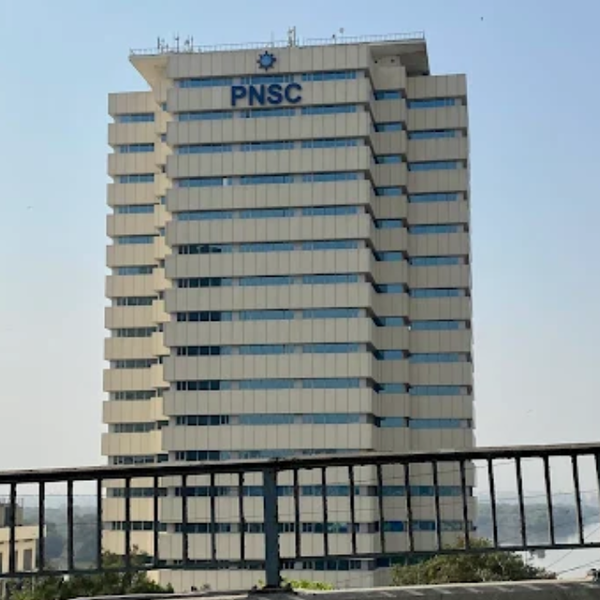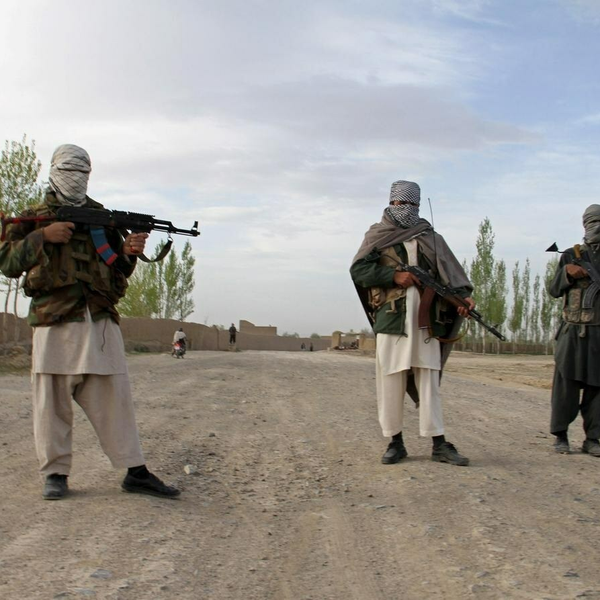Bank Alfalah CEO Atif Bajwa urges ‘war on cash’ to boost Pakistan’s economy
Bajwa stresses a shared responsibility in digitizing transactions to reduce cash dependency in a podcast with Kamran Khan
News Desk
The News Desk provides timely and factual coverage of national and international events, with an emphasis on accuracy and clarity.
Atif Bajwa, CEO of Bank Alfalah, has called for a nationwide shift toward digital transactions, urging stakeholders to work together to reduce Pakistan’s reliance on cash.
In a podcast with Kamran Khan, Bajwa highlighted the regulatory challenges and economic consequences of a predominantly cash-based economy.
Bajwa stressed that banks alone cannot drive this transformation, emphasizing the need for government support and business sector participation.
“We declared a ‘war on cash’ years ago because cash transactions hinder savings and economic growth,” Bajwa said. “While banks must invest in digital transaction technology, the government must implement the right policies and ensure enforcement.”
He noted that Pakistan has approximately PKR 9.5 trillion in circulation, and even integrating a fraction of this amount into the formal economy would have a multiplier effect of 3.4 times, boosting overall economic activity.
Banks’ role in supporting startups and SMEs
Bajwa also discussed Pakistan’s startup ecosystem, stressing that venture capital and private equity funding are essential for early-stage businesses.
“Globally, venture capitalists take on early-stage risk, while debt financing is kept low,” he explained. “Banks have the resources, human capital, and international infrastructure to support startups, but regulatory backing is needed.”
Bank Alfalah has already launched a venture capital fund, making initial investments in select companies. Bajwa suggested that with regulatory support, banks could establish software houses to drive technological advancements.
Economic recovery
Addressing Pakistan’s economic challenges, Bajwa emphasized that recovery cannot happen overnight. “No one expects someone to start running at full speed after falling,” he said. “Economic recovery takes time, the right policies, and patience.”
He criticized Pakistan’s lack of long-term policy consistency, noting that frequent policy changes deter investors. “Foreign direct investment (FDI) hasn’t had a great track record in Pakistan,” he said. “Investors from the UAE, Malaysia, China, Saudi Arabia, and the U.S. have been discouraged by unstable policies.”
Bajwa recommended prioritizing local investors, who understand Pakistan’s economic environment and can help attract FDI.
“Even in India, major foreign investments were initially led by local business families like Tata, Birla, and Ambani,” he pointed out.
Lessons from TERF: A missed opportunity for SMEs
Bajwa reflected on the Temporary Economic Refinance Facility (TERF), a State Bank of Pakistan initiative launched during the COVID-19 crisis. While widely praised at the time, Bajwa believes the program could have been more effective had it focused more on small and medium-sized enterprises (SMEs) and export-driven industries.
“Future policies should direct more funding toward SMEs, as they hold immense potential for economic growth,” he said.
Challenges in financing SMEs and supply chains
Bajwa described SMEs as an untapped sector with enormous potential, but noted that financial barriers and bureaucratic hurdles continue to limit their growth.
“While banks focus on SME financing, the real challenge is their ecosystem—regulatory approvals, taxation, and supply chain financing,” he explained.
Many SMEs operate within larger supply chains, such as the automotive industry, where they manufacture parts for Toyota, Hyundai, and Kia.
“If an SME lacks access to finance, its entire supply chain is disrupted,” he said. “Banks need to do more to support these businesses.”
Privatization
Discussing privatization efforts, Bajwa argued that while privatization is the right path, Pakistan’s decision-making process remains too complex and slow.
He pointed to the successful privatization of banks as an example of how government reforms can benefit both the economy and public institutions.
“PIA’s privatization is not impossible,” Bajwa said. “Several groups were interested, but the transaction structure needs to be market-driven.”
He warned that if the government sets unrealistic price expectations, investors will lose interest.
“The goal should be to make transactions viable rather than imposing rigid conditions that discourage buyers,” he said.
Mubarak Al Nahyan’s generosity in flood relief
Bajwa also shared how Sheikh Mubarak Al Nahyan, a key figure behind Bank Alfalah, played a crucial role in Pakistan’s flood relief efforts.
“When the floods hit, his highness Mubarak Al Nahyan emphasized that we had a duty to act,” Bajwa said.
Initially, Bajwa approached the bank’s leadership with a donation request. However, Sheikh Mubarak Al Nahyan pledged double the requested amount, making Bank Alfalah the largest corporate donor, with a $10 million contribution.
“These funds provided immediate relief, built homes, schools, and clinics for affected communities,” Bajwa said. “His highness also introduced a long-term corporate social responsibility (CSR) budget to ensure ongoing support.”
Bajwa underscored the bank’s commitment to giving back to society, saying that philanthropy remains a core value.
The path forward
As Pakistan navigates its economic recovery, Bajwa reiterated that digital transactions, SME support, and policy stability will be key drivers of growth.
“The direction is right, but we must accelerate progress,” he concluded.








Comments
See what people are discussing